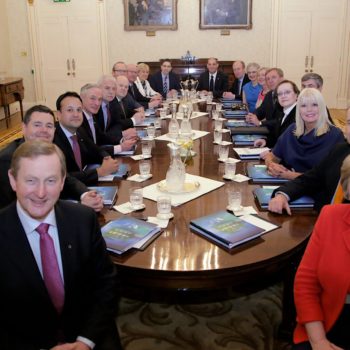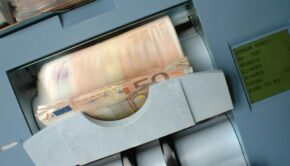‘Ireland’s capital investment expenditure the second lowest in EU’, says Ibec

Ambition set forth in Programme for Government must be matched by firm investment spending commitments, says Ibec
18 May 2016
Ibec, the group that represents Irish business, today published a detailed analysis of the Programme for Government and said welcome aims now need to be matched by firm investment commitments.
Meanwhile RGDATA said of the new programme that “there are many positives for RGDATA members and a number of challenges including plans to implement the Public Health Alcohol Bill, an increase in the minimum wage, the introduction of a sugar tax and plans to make Ireland tobacco free by 2025.” The retailers’ group has compiled a document showing the key campaign issues affecting its members, which can be viewed here.
Ibec said strong economic growth and low interest rates create a unique opportunity to improve the national infrastructure, reform the delivery of public services and foster a dynamic enterprise economy. This opportunity must not be squandered by a lack of ambition or short-sighted political compromise.
The necessary investment will require a more flexible approach to how EU fiscal rules are applied. Ibec believes the government needs to work to secure a political agreement in Brussels to make this happen. The organisation has raised the issue at the highest levels with the Commission, other national governments and with other European business federations.
Ibec director of policy Fergal O’Brien said: “Strong growth and a rapidly increasing population are putting severe pressure on the country’s infrastructure and public services. We are currently investing far too little. Ireland’s capital investment expenditure is currently the second lowest in the EU while we have Europe’s fastest growing population. Average annual Exchequer funded capital investment over the 2015-2020 period is planned at under 2% and will be the lowest of any period since 1970.”
O’Brien also pointed out that a number of sectors are experiencing skills shortages and are having difficultly retaining talented staff. “The marginal tax rate remains too high and is a barrier to workers taking new jobs, doing overtime and going for promotions,” he said. “Housing shortages in key urban areas are also making Ireland a less attractive place to do business and are a deterrent to workers based abroad looking to relocate here. These problems require the immediate attention of government and demand an approach based on evidence, not political expediency.”
“With the right decisions, by the end of the Dail term in 2021, Ireland has the potential to see employment return to pre-crisis levels with an additional 250,000 jobs with government debt to GDP levels falling to 60%. The economy has the potential to grow by 3-4% each year. Record low interest rates on capital markets mean now is the time to expand and upgrade the national road network, bring broadband into every household in the country and make our education system among the very best in Europe,” O’Brien added.
Ibec’s full document, ‘The Programme for Government: A business perspective’ can be viewed here.



 Print
Print




Fans 0
Followers